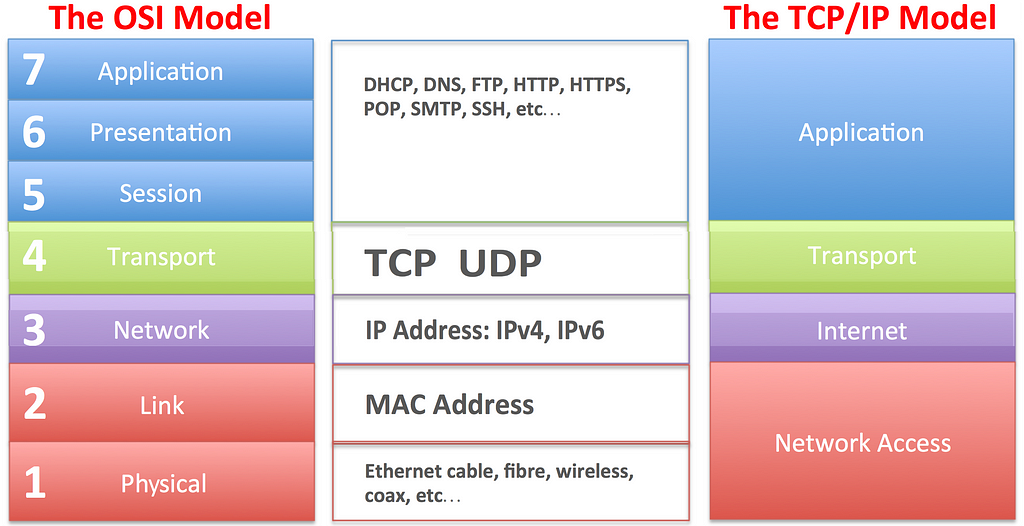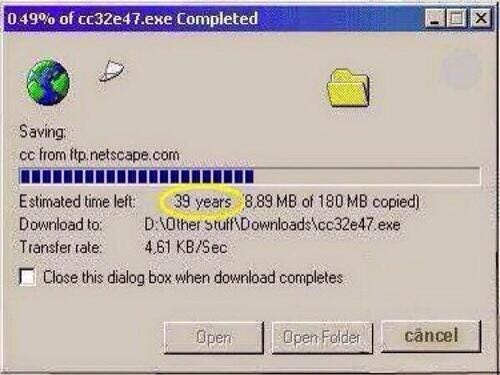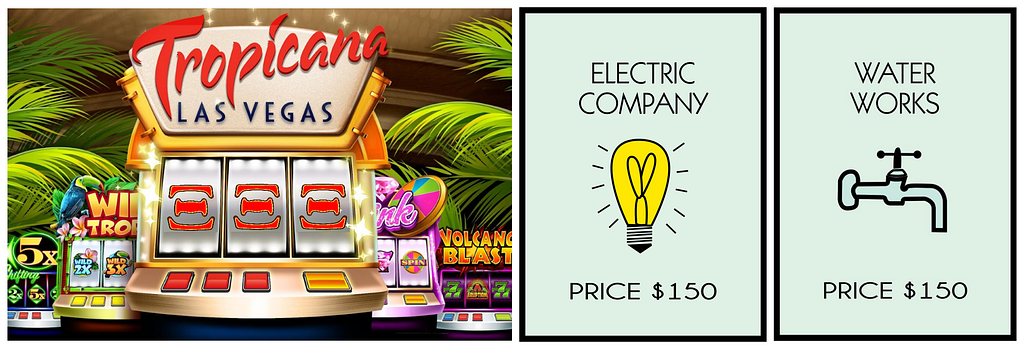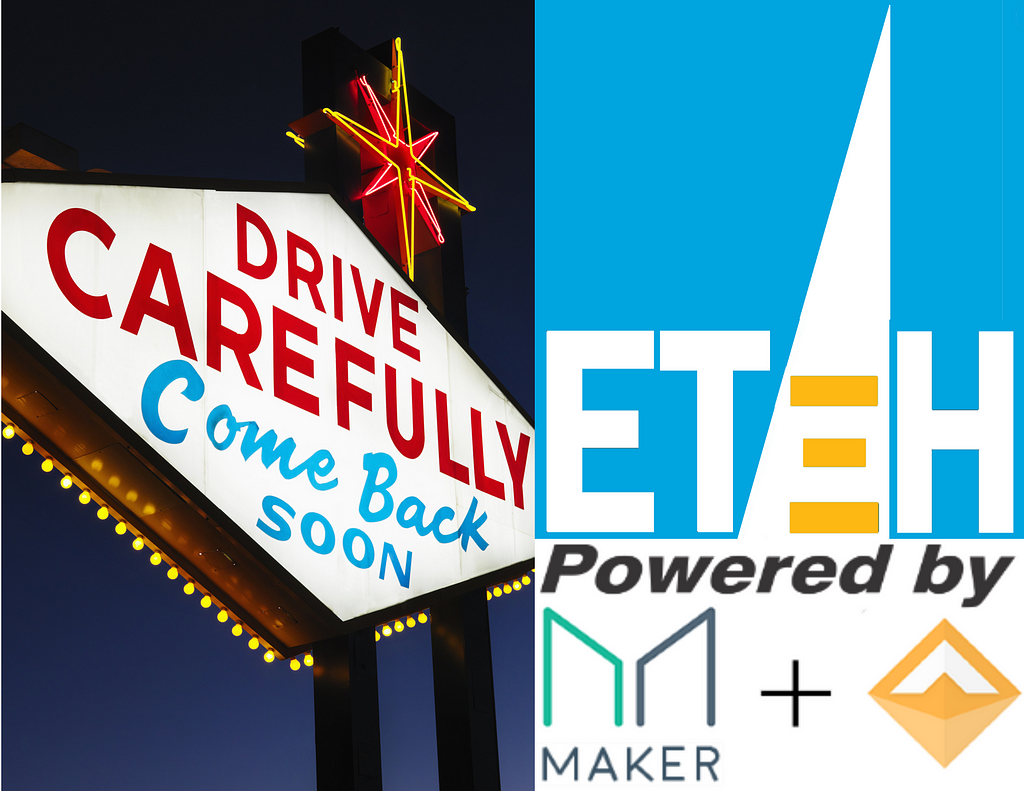Latest news about Bitcoin and all cryptocurrencies. Your daily crypto news habit.
The Case for Stablecoins — 1
Cryptocurrency price does not equate to cryptocurrency’s valueCryptocurrency is still a technical, niche and lousy payment system BoA BSoD — don’t you feel safe knowing that windows 95 is operating to protect your banking details :)
BoA BSoD — don’t you feel safe knowing that windows 95 is operating to protect your banking details :)
When you spend time using the Internet is it because you care about the following items:
- Routers/switches/fiber optics/CAT5 — the Internet’s hardware backbone
- BGP—Border Gateway Protocol, the Internet’s global routing protocol
- Global routing tables—used by ISP’s to route packets
- IP addresses — used by the TCP/IP protocol to route traffic on the Internet
- DNS —the Domain Name System used to map IP addresses to names
 Almost makes me nostalgic for my CCNA days when I was dreaming of becoming a network engineer
Almost makes me nostalgic for my CCNA days when I was dreaming of becoming a network engineer
If this is you, then you make up less than 1% of my readership. If you’re in that 1% you might find the image above nostalgic. Perhaps, it brings back many fond memories of learning how to troubleshoot the TCP/IP model layer-by-layer to solve your connectivity issues. Chances are 99% of my readers use the Internet to check their email, catch up on the headlines, or see if their friends are doing anything interesting. The items above are essential for the Internet to function, but have no value to you as a user.
When you spend time purchasing cryptocurrency, sending payments, or understanding how cryptocurrency works is it because you care about any of the following items?:
- Blockchain consensus protocols
- Miners / mining algorithms
- Cryptocurrency price
- Blockchain ledger database functionality
- Private/public key cryptography
- How Ethereum addresses generate those cool looking identicons
Unfortunately, the answer to this question is probably yes. I say unfortunately because this indicates that cryptocurrency as a useful consumer tool is still where the Internet was in the early 1990s more or less. The items above are essential for cryptocurrency to function but are of no value to users. If you are spending your time trying to understand what this new fad all the cool kids are into is all about, then you are probably reading about these things. This means that most of your time is wasted trying to understand the machinery of cryptocurrency and very little of your time is spent leveraging its useful features.
Just like the machinery of the Internet does not make the Internet valuable, the machinery of cryptocurrency does not make cryptocurrency valuable. What makes the Internet valuable is its ability to provide people with useful information. What makes a cryptocurrency network valuable is its ability to provide people with payments that are censorship resistant and irreversible and not subject to payment friction imposed by governments or other authorities. The Internet provided people access to information through a medium that was untraditional in the early 1990s. In the same way cryptocurrency provides access to payment networks which are untraditional today. Most people didn’t need to go online to obtain information that was valuable to them in 1994. Similarly, most people don’t need to use cryptocurrency to make payments in 2019. We had libraries in 1994 and they worked great. Ah the days of microfiche and card catalogs; you didn’t even need a computer to learn new things!
In the early days of the Internet people did read up on how the Internet worked. Knowing the technical details of the Internet allowed you to troubleshoot issues you might have accessing an FTP share, loading a website or hosting a web page. The more technical skill you had in the early days of the Internet, the more value the Internet had for you when you used it. Today, if a website is not convenient for the least technical among its users it means that it is poorly designed and we should search for some other competitor in the marketplace.
Ethereum is an awful payment system because of price volatility 39 years lol-Seriously though if you lived during this era you saw download times that would take days
39 years lol-Seriously though if you lived during this era you saw download times that would take days
Perhaps you failed to notice that in the list above cryptocurrency price is listed as being, “essential for it to function but not valuable to users.” If you are the type of person who might understand this better if I made a chart I created one just for you here. I’m very likely the first person to tell you that the price of a cryptocurrency has absolutely nothing to do with its value. The price is just an aspect of the machinery. Price provides no actual value to users who need payments that are censorship resistant and irreversible and not subject to payment friction imposed by governments or other authorities. Any time you’ve spent monitoring the price of cryptocurrency will one day be equivalent to nerds learning how to optimize the FTP protocol in 1995. Unless you wanted to wait around for 39 years sometimes you had to learn to troubleshoot your connection to increase your download speeds 😂🤣😭.
The price of a cryptocurrency exists as a means to provide the network a tool to maintain incentives for miners. The price of a native token should not transform it into a speculative asset. Rather, price should be viewed as a requirement for a cryptocurrency to function. Without a price, the miners have no incentive to maintain the integrity of the network. This is why there must be a market for cryptocurrency. Unfortunately, open markets for cryptocurrency have resulted in speculation. Speculation has lead to extreme price volatility. Price bubbles are one consequence, a circumstance where perceived value rapidly increased over a short period of time, followed by dramatic losses. If it was possible to restrict the buying of cryptocurrency to only those users who were utilizing it to make payments this might limit price volatility. This would be as strange as limiting ownership of stock in TM to only those people who drive Toyotas, but crazier things have been proposed in the past.
In saying this I’m admitting that a cryptocurrency’s native token also doubles as equity in the protocol. I have already written on this topic. The price of a currency like ETH is trying to do two things at once here. If the miner incentive system and the equity in the protocol shares could somehow be separated this would be nice, but we don’t live in that world. But even if we did, equity in the protocol would still see extreme bubbles. So long as people desire to own a cryptocurrency’s native token, who don’t need the unique payment features the protocol provides, there will always be bubbles.
My complaining about price volatility is akin to airlines complaining about the unstable price of oil. In their view, it cuts into their profit margins and is largely manipulated by speculators on Wall Street. Given how airlines love to play the futures market for oil themselves I’m not sure how much of a “tax” oil volatility really is for them, ¯\_(ツ)_/¯ but I still hear them complain about it. Cryptocurrency speculation becomes a windfall when the price is skyrocketing but it becomes a tax when the bubble bursts and the price crashes back down. Regardless of the speculation there will still always be users who need payments that are censorship resistant and irreversible and not subject to payment friction imposed by governments or other authorities. If that isn’t you and you own cryptocurrency, then congratulations🎉! You’re a speculator.
Two protocols determine if the internet is valuable or useless
Average people don’t find the Internet useful because of its ability to connect computers. The Internet’s value is not its technical capacity to allow computers within the same network to communicate, rather the Internet’s value is derived from the value of the information users are capable of accessing when they go online. With DNS and search engines, accessing sites is easy because these services provide an index which takes names or search terms and matches them with IP addresses. But without DNS, users cannot type a name into the search bar to get access to sites such as Facebook or Google. Without Google or Yahoo, users cannot type a search query into a search engine to find the website that has the information they want. Without DNS and search the only way you can get to the information that is valuable to you is:
- You must already know the IP address of the site you want to visit
- You need to type that IP address into the search bar
The above two requirements would make the Internet virtually unusable for 99.8% of people who would want to use it. It would also make it lousy and really inconvenient for the other 0.2% of people.
Let’s imagine DNS and all search engines go down right now. 99.5% of the sites that are on the Internet are still fully functioning. They are ready to deliver valuable information to anyone who would request it. And yet, the Internet would still be inaccessible to almost all users who would want to use it but can’t without DNS and search engines. Since it is unusable that means that it cannot deliver information that is valuable. The Internet’s inability to deliver valuable information to users means that, regardless of its valuable content if there isn’t a way to access that content then users will not use it.
As soon as DNS and search come back up the Internet’s value would be restored although its content never changed. This is how essential DNS and search are to making the internet usable to everyone. Without an index there is no way to access the information that users want. If they can’t access the information then what use is the Internet to them? The lesson here is simple:
if you take away the Internet’s index it becomes useless
What Ethereum and Vegas have in common & why stablecoins are the utilities of crypto-finance world
 Ξ Ξ Ξ winner, winner chicken dinnerCryptocurrency networks function to provide these features:
Ξ Ξ Ξ winner, winner chicken dinnerCryptocurrency networks function to provide these features:
- A payment network to facilitate payments with unique attributes.
- A form of digital wealth in an asset class similar to that of a domain name.
- A means to create special types of escrows and contracts
It would be logical then to assume that failing to function as either a payment network with unique attributes or a form of stable digital wealth would reduce cryptocurrency’s perceived value. What good is an escrow system if the value you put into the escrow at day 1 is significantly less than the value which comes out at day 120? Wouldn’t such an escrow system be unusable for 99.8% of people who use online financial services? Wouldn’t it also mean that it would be lousy and really inconvenient for the other 0.2% of people who actually do use it?
In comparison to other forms of wealth, the volatility of this asset class makes it a very strange payment network. Yes you can pay people, but you had better do it quickly if the price is falling. Once a merchant gets their payment in cryptocurrency they can either “let it ride” or “cash out their chips,” which seems odd if you are a coffee shop selling mochas. Volatility makes cryptocurrency networks the Las Vegas of payment systems. Its exciting to go to Vegas, but its not always fun. You’re not just sending payments you are also gambling that the value of the payment won’t go down significantly before the recipient can convert to local currency. Volatility makes cryptocurrency as a payment network significantly less valuable relative to other forms of payment options. But what if we could gain all the unique attributes of cryptocurrency as a payment network while holding an asset that maintains a stable price?
If using a cryptocurrency network to send payments with a volatile asset is akin to a speculative visit to Las Vegas what then is using a stablecoin like? Its like using a utility, in other words its very boring. The best stablecoins should be so boring that from a user’s experience, there is no longer any excitement (or novelty) associated with making payments in cryptocurrency. Now you can send payments that don’t fluctuate relative to the value of someone’s local currency. This removes the necessity to convert cryptocurrency into local currency immediately. This means you can leave this currency locked in an escrow for as long as you like without worrying that the escrow’s value will decrease over time.
Just like your Internet Service Provider (a utility) provides a gateway to a network of valuable information, a stablecoin (a utility) should provide you a gateway to a network of valuable new financial services. For this service they should charge a small fee and that fee should be insignificant relative to the value of the new services you are now able to access.
Stablecoins are a gateway to services that are useful
 Now leaving Las Vegas — Next stop ET&H (PG&E = lousy company, easy to modify logo, BUT you get the point)
Now leaving Las Vegas — Next stop ET&H (PG&E = lousy company, easy to modify logo, BUT you get the point)
Conclusion: value is in utility not in price
In comparison to other forms of wealth, the volatility of cryptocurrency as an asset class has both its upsides and its downsides. But for payments, volatility makes cryptocurrency as a payment network significantly less valuable relative to other forms of payment options. But what if we could gain all the unique attributes of cryptocurrency as a payment network while holding an asset that maintains a stable price? That would make such an asset more valuable than an asset with a volatile price. At first this may seem like a contradiction. How can something not increase exponentially in price and yet still be more valuable than an asset that is skyrocketing? Say it with me, altogether now:
Cryptocurrency exists for users who need payments that are censorship resistant and irreversible and not subject to payment friction imposed by governments or other authorities.
ISPs and tech companies increased widespread adoption of the Internet by adding DNS and search. Now innovators such as MakerDAO are removing volatility. This is making it easier for users to make payments, hold digital wealth and place this wealth into escrows and contracts for longer periods of time. This is how stablecoins will make crypto-finance applications more accessible, and thereby drive adoption as more apps which use stablecoins are developed, making the whole ecosystem increase in value.
Value is in utility not in price. Although all my crypto-friends would like to go to the Moon, I myself would like to come back down to Earth and build something with more solid foundations. Even if your destination is the Moon my next series of blog posts should convince you that before you get there you still need widespread adoption of a stablecoin built on Ethereum. But before I started discussing stablecoins at length I thought I would give you a quick tutorial on why price and value are not the same things.
This blog post is long enough for now but I have a great deal more to say on this subject before I’ve completely made my point. In my next post I will compare building on traditional financial networks vs. building on the blockchain. BTW I can tell the difference between the speculators who grudgingly agree with me and the #buidlers who want to see real consumer applications built on Ethereum. The speculators give me 1 clap and the #buidlers 50, just a FYI 😉.
This post was a collaborative effort with help from Billy Becker.
The Case for Stablecoins — 1 was originally published in Hacker Noon on Medium, where people are continuing the conversation by highlighting and responding to this story.
Disclaimer
The views and opinions expressed in this article are solely those of the authors and do not reflect the views of Bitcoin Insider. Every investment and trading move involves risk - this is especially true for cryptocurrencies given their volatility. We strongly advise our readers to conduct their own research when making a decision.
